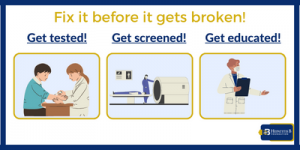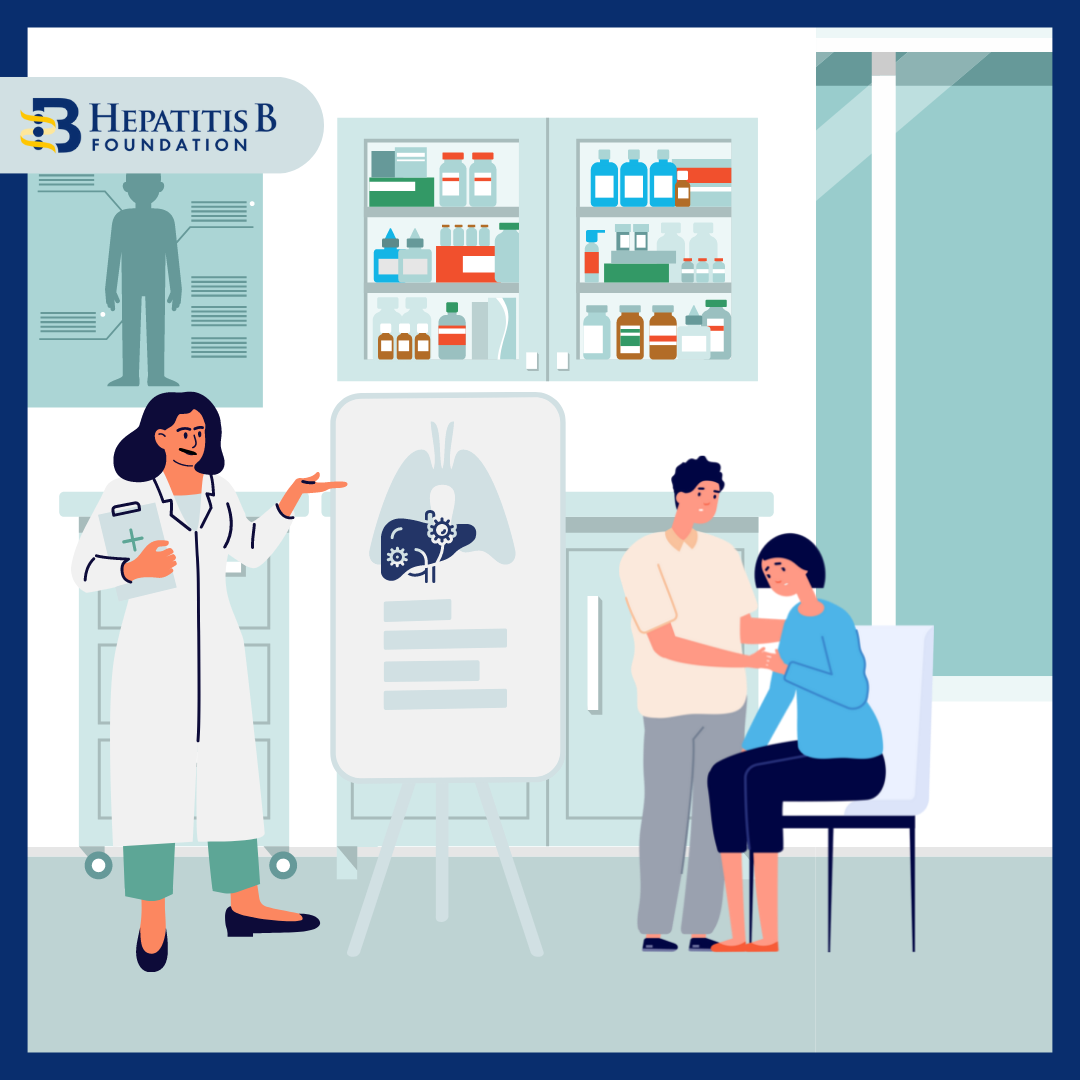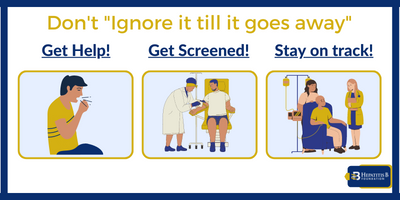Did you know that chronic infection with hepatitis B is the leading cause of liver cancer?
For this month’s blog we talk to an expert in liver cancer, Dr. Amit Singal. Dr. Singal is a medical researcher and professor at the UT Southwestern Medical Center with extensive experience in digestive and liver diseases. Join us as we interview Dr. Singal about the importance of liver cancer screening as a preventive tool to improve health for people who may be at risk for hepatitis B or liver cancer.
Question: What puts someone at risk for liver cancer or hepatocellular carcinoma (HCC)?
There are several risk factors for liver cancer including obesity, being male, and older age; however, the biggest risk factor is the presence of advanced chronic liver disease (having cirrhosis for example). Most people who develop hepatocellular carcinoma (the most common type of liver cancer) do so after having cirrhosis (scarring of the liver). However, it is important to know that there is a small number of people with hepatitis B (about 10%) that can develop liver cancer or hepatocellular carcinoma without having cirrhosis.
Question: Should a person with hepatitis B get screened for liver cancer?
Chronic hepatitis B is a risk factor for HCC; but we do know that some patients are at higher risk than others for liver cancer. Most screening recommendations are based on demographics (like age and sex) and clinical characteristics (like how a person got hepatitis B and presence of other risk factors). We now have started to move to using a clinical risk calculator that incorporates these factors, such as the PAGE-B score (which is based on platelet count, age, and gender). A platelet count refers to the number of platelets or cells that help your blood clot. It is used in blood tests to detect any problems with your blood flow or diagnose any serious illnesses like cancer. You can learn more about the clinical risk calculators for liver cancer here.
Question: Can liver cancer be detected at an early stage?
Yes, liver cancer can be found at an early stage if patients undergo regular liver cancer screening. Liver cancer screening should be performed using abdominal ultrasound and a blood test, alpha fetoprotein (AFP), every 6 months. AFP is a protein found in the liver. Very high levels of AFP may indicate cancer. These tools are available, non-invasive (does not require the use of any tools to cut through the skin or enter the body) and can detect most liver cancers at an early stage. This is very important since we have cures available if liver cancer is found at an early stage, with average survival over 10 years in the United States for example. Unfortunately, patients where liver cancer is found at later stages do not typically have curative therapies available and have an average survival of only 2-3 years. Therefore, regular liver cancer screening, especially with hepatitis B, is so important.
Question: Does an individual need to display symptoms before getting screened for liver cancer?
We do not want to wait until patients have symptoms. Liver cancer can be silent and asymptomatic (without symptoms) for several months and is almost always silent at an early stage. Once people do have symptoms, patients typically have large tumors, and it is too late for curative liver cancer treatments.
Question: What is the process of liver cancer screening like? What tests are used to screen for liver cancer?
Screening should be performed using abdominal ultrasound and a blood test, alpha fetoprotein, every 6 months. These tools are available, non-invasive, and can detect most liver cancers at an early stage. If either test is positive or abnormal, then patients typically undergo confirmatory diagnostic testing with multi-phasic computerized tomography (CT) scan (a combination of x-ray scans that looks at changes insides your body) or contrast-enhanced MRI (a machine that produces pictures of organs in the body).
Question: Are there any risks involved in liver cancer screening?
Abdominal ultrasound and AFP are safe and non-invasive, so the risks of liver cancer screening are relatively low. However, there is a risk of false positive results, which means that someone tests positive when they are not positive for liver cancer. This can result in additional diagnostic testing and patient anxiety. Current research shows that these risks are uncommon, and the benefits of HCC screening far outweigh the associated risks.
Our thanks to Dr. Singal for providing this life-saving information. Liver cancer may be silent, but people living with hepatitis B must be loud when telling their doctors that they need to be screened!
If you have recently been diagnosed with hepatitis B or want to learn more about liver health, check out the Hepatitis B Foundation’s Information Guide here.
“Photo from UT Southwestern.”


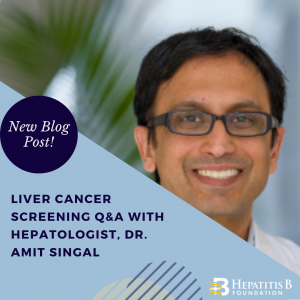
 Yufei Zhao is 45 years old and lives with his family in Philadelphia, Pa. Yufei discovered that he had hepatitis B when he attended a community health fair with his family. Even though he was instructed to talk about his diagnosis with a doctor and learn more about possible treatment options, Yufei decided to do nothing as he did not feel sick. While he has health insurance through his employer, he never utilizes any health care services. He often skips annual wellness visits as he says he “never gets sick.”
Yufei Zhao is 45 years old and lives with his family in Philadelphia, Pa. Yufei discovered that he had hepatitis B when he attended a community health fair with his family. Even though he was instructed to talk about his diagnosis with a doctor and learn more about possible treatment options, Yufei decided to do nothing as he did not feel sick. While he has health insurance through his employer, he never utilizes any health care services. He often skips annual wellness visits as he says he “never gets sick.”  A few weeks ago, Yufei’s family noticed that he has been skipping meals frequently saying he’s full or not hungry. At his daughter’s urging, he decided to go for a visit. After conducting some more tests, his doctor explained that the chronic infection with the hepatitis B virus had progressed substantially, and he had developed cirrhosis. After an MRI diagnosis, it was revealed that Yufei had liver cancer
A few weeks ago, Yufei’s family noticed that he has been skipping meals frequently saying he’s full or not hungry. At his daughter’s urging, he decided to go for a visit. After conducting some more tests, his doctor explained that the chronic infection with the hepatitis B virus had progressed substantially, and he had developed cirrhosis. After an MRI diagnosis, it was revealed that Yufei had liver cancer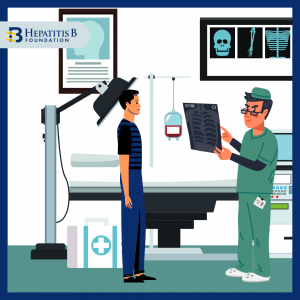 The Hepatologist (liver doctor) explained to Yufei that the liver is an important organ and acts as a cleaning system for the body. It removes toxic waste, purifies blood, and helps to digest food properly. When the virus entered the liver, it made many copies of itself and started attacking healthy liver cells. This led to inflammation and weakened the ability of the liver to carry out its most essential tasks. Because he was never monitored for hepatitis B, the virus allowed tumors to grow in the liver which caused the cancer. When the tumors grow in size or number, it eventually spreads to other parts of the body and disrupts other vital processes as well.
The Hepatologist (liver doctor) explained to Yufei that the liver is an important organ and acts as a cleaning system for the body. It removes toxic waste, purifies blood, and helps to digest food properly. When the virus entered the liver, it made many copies of itself and started attacking healthy liver cells. This led to inflammation and weakened the ability of the liver to carry out its most essential tasks. Because he was never monitored for hepatitis B, the virus allowed tumors to grow in the liver which caused the cancer. When the tumors grow in size or number, it eventually spreads to other parts of the body and disrupts other vital processes as well. The doctor mentioned that liver cancer is often called the silent disease because symptoms may not always be present. Even with a hepatitis B, a person could look or feel okay but that does not mean the virus isn’t active and causing damage. When the symptoms do show up, it might be too late to prevent liver cancer. After discussing his options with the doctor, Yufei learned that the best treatment for him was to get a liver transplant.
The doctor mentioned that liver cancer is often called the silent disease because symptoms may not always be present. Even with a hepatitis B, a person could look or feel okay but that does not mean the virus isn’t active and causing damage. When the symptoms do show up, it might be too late to prevent liver cancer. After discussing his options with the doctor, Yufei learned that the best treatment for him was to get a liver transplant. 